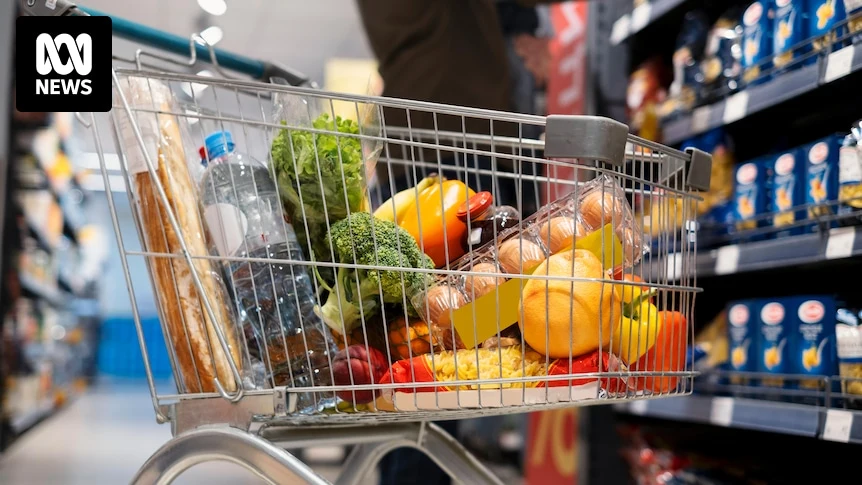Some supermarket brands are made by the same factories as the original ones, the difference is mostly marketing.
By the way, this is similar to Amazon analyzing the most profitable products from their partner merchants and creating their own “basic” version to take the market. But people don’t seem as scandalized when supermarket do it.
I’m guessing you’re French based on your instance. I had a friend many moons ago that worked at a processing plant where they packaged the William Saurin stuff (cassoulet, etc). At some point during the batch process once they reached the quota for the branded batch, they literally just switched the label roll to the Lidl ones and kept going with the exact same food.
Of course there’s no way to really know which products are like this and which are made with nasty cheap ingredients.
Because once you get off Lemmy/Reddit the world is just fine with white labeling.
If a company takes it’s time to build a brand I can trust the product I am perfectly happy paying a little extra. Wegmans does this heavily but in their boxes they have clear and consistent gf labeling. I’m happy to pay a bit extra.
The problem with brands is you have to know the brand to know if you’re paying for quality or advertising, or both. There are plenty of big brand name products that are not worth the price, but there are plenty that where the price premium is reflected in the quality of the product.
Unfortunately everything has to be on a case by case basis. I generally favour generics but there are a few branded products that I will go out of my way to buy.
A treat example is Pyrex. It used to be a mark of quality due to the material they used to make their plates bowls etc. Then I got sold to some big conglomerate and they switched to cheaper less heat proof material. Now Pyrex is just a shitty legacy name slapped on crap, but at a premium price.
This is the same for a majority of brand names historically considered “premium” (tools, electronics, etc). The brand gets bought explicitly to bleed it dry by aggressively cost cutting and outsourcing to make a massive short term gain; until enough people learn the brand has been poisoned and raped.
Good brands such as Costco (Kirkland) and Wegmans here do that work for you and well. I’ve never had a product that was noticeably expensive without the value.
I’m the exact opposite. In a lot of cases it’s exactly the same product (as I. from the same factory) with different packaging.
I will always try the off brand first to see the quality. It’s normally the same or better.
Couldn’t give a shit about supporting any particular company.
Here in the UK the perception of the value of own-label products is mixed where some are cheap but rubbish quality (Waitrose Essential Bagels) and others that are as good quality as the big brands (Tesco Bagel v
American Bagel Co.. The New York Bakery Co.) but way cheaper.However, there does seem to be something happening where good value own-label products are disappearing through more shelf space being given to big brands and displacing own-label equivalents.
I use sensitive toothpaste and I usually buy the stuff several tubes at once. The big brand is Sensodyne which is good but at £5.75/75ml (Tesco) is expensive. The Tesco brand which was as good was way cheaper at around £1 making it far better value for money.
But here’s the issue, the big brands can’t compete with the quality and value of own-label products on pricing. Across three of the largest supermarkets (Aldi, Lidl, Tesco) the own-label sensitive toothpaste has disappeared with more shelf space being allocated to Sensodyne. All recently at the same time.
That’s an interesting one. In the US I haven’t found a store brand that was the same as Sensodyne. They’re all crap here comparatively.
Any pictures of the bagels? I’m pretty curious what a UK definition of a good bagel involves.
I got the name wrong instead of The New York Bagel Co.
Whether they are any good by comparison to a top end Bagel product I don’t honestly know. But out of those available generally at UK supermarkets they are the nicest.
Is it 1985? How am I reading this title right now?
It does sound odd, but I read it as “things used to be cheaper on the internet”.
I’ve never bought groceries on the internet, but a good example is household products
Compare the price of, for example, drain cleaner, coffee machine descaler, dish soap, sponges etc etc
They’re far cheaper to buy in a supermarket than from Amazon or anywhere online now. Online retailers have been jacking up prices for a decade, whereas supermarkets have been trying to keep them down
I’m not sure that you and I read the same article
Logistics hell. That’s why huge franchises need to split.
Is “home brand” an Australian term? I’ve never heard store brands or private labels called that
Yes, I think it’s the house brand of one of the two big chains, Coles and Woolworths
I think in the UK it’d be the “own brand” - very much conveys the same idea of the brand belonging to the store https://dictionary.cambridge.org/dictionary/english/own-brand
I’m in the U.S. as well, but the term “home brand” was immediately clear to me.
EDIT: We definitely have the terms “House Brand” and “House label” here.
ABC News Australia - News Source Context (Click to view Full Report)
Information for ABC News Australia:
MBFC: Left-Center - Credibility: High - Factual Reporting: High - Australia
Wikipedia about this sourceSearch topics on Ground.News
https://www.abc.net.au/news/2024-10-04/does-brand-matter-when-shopping-at-the-supermarket/104426580








